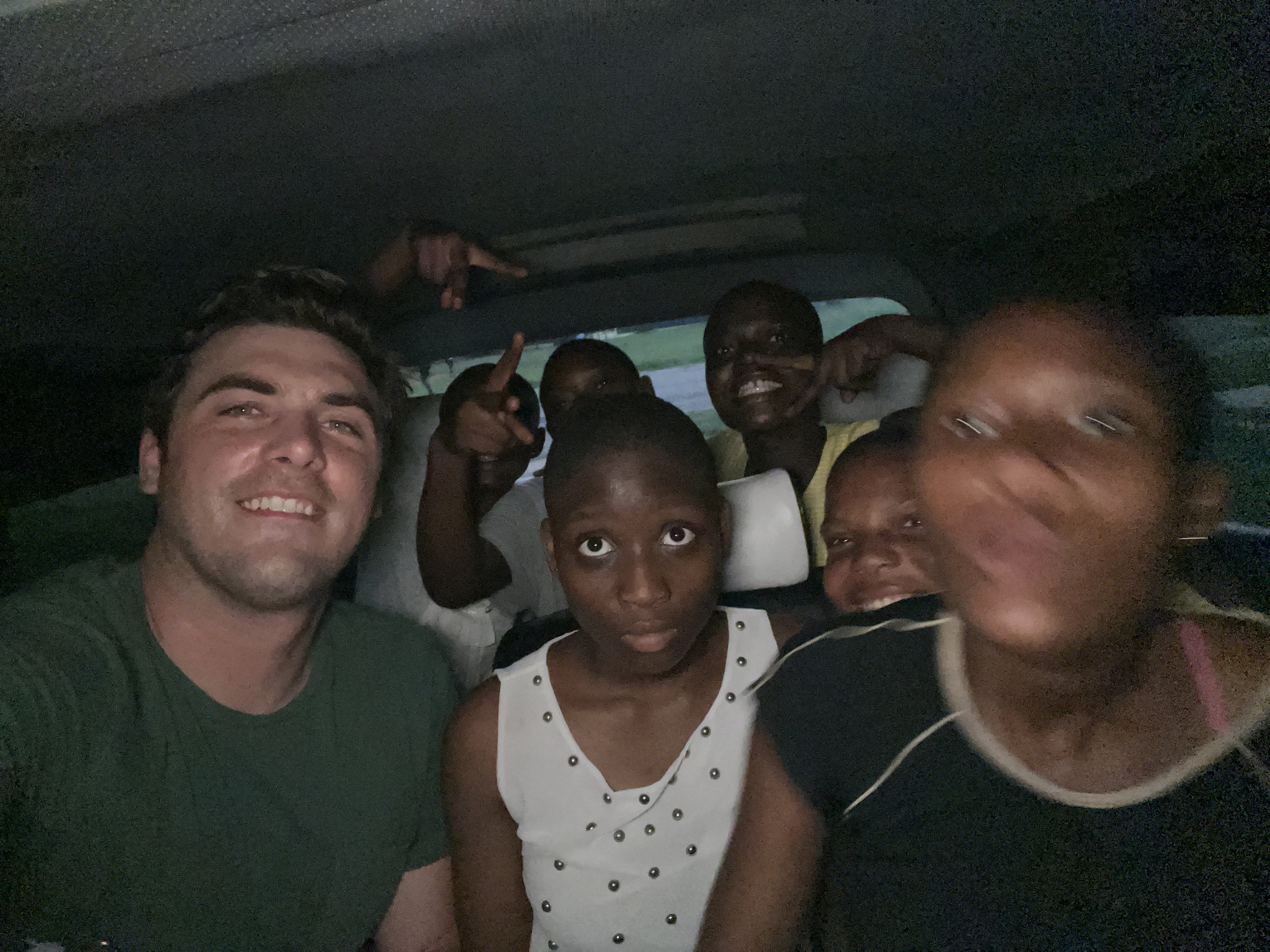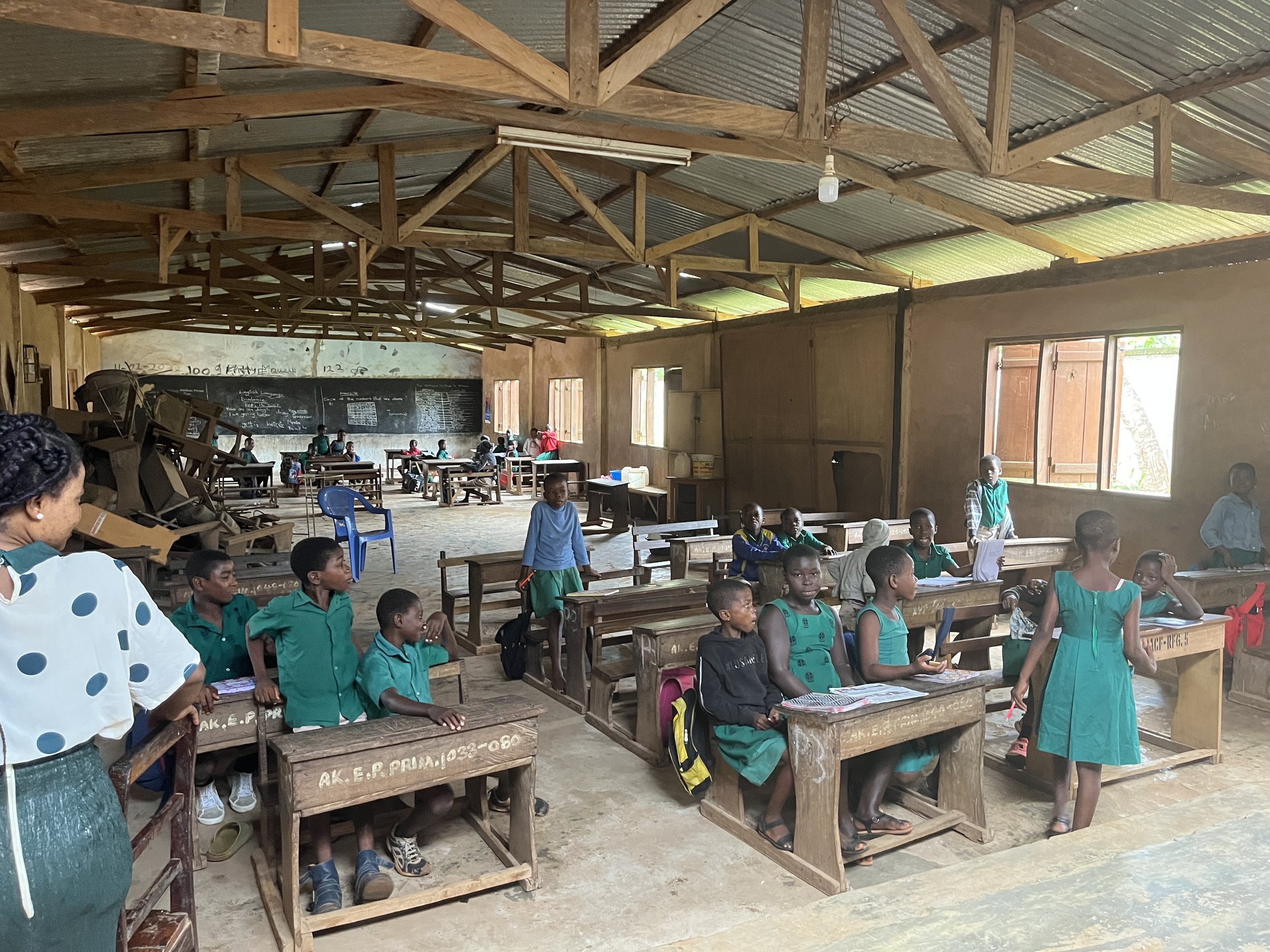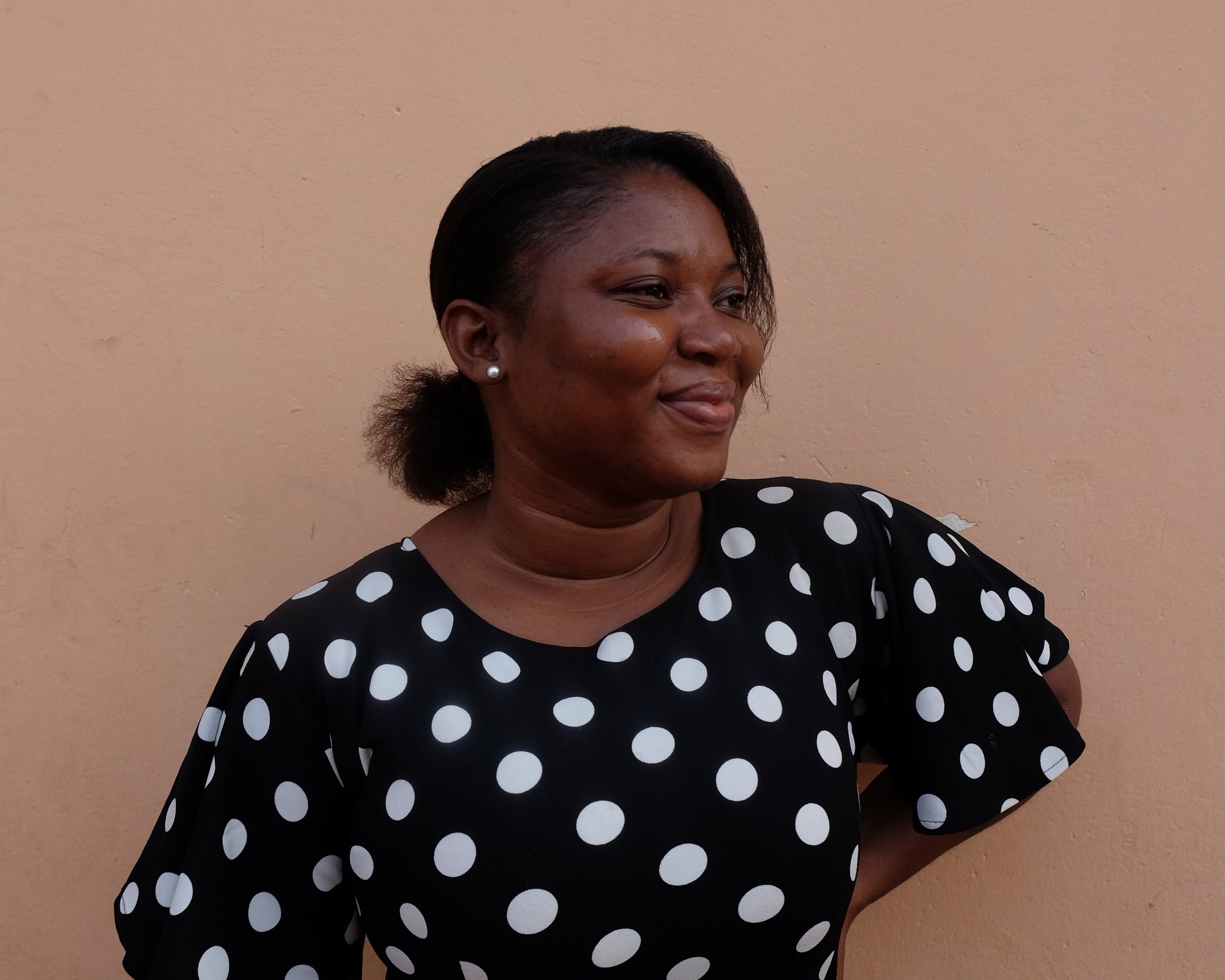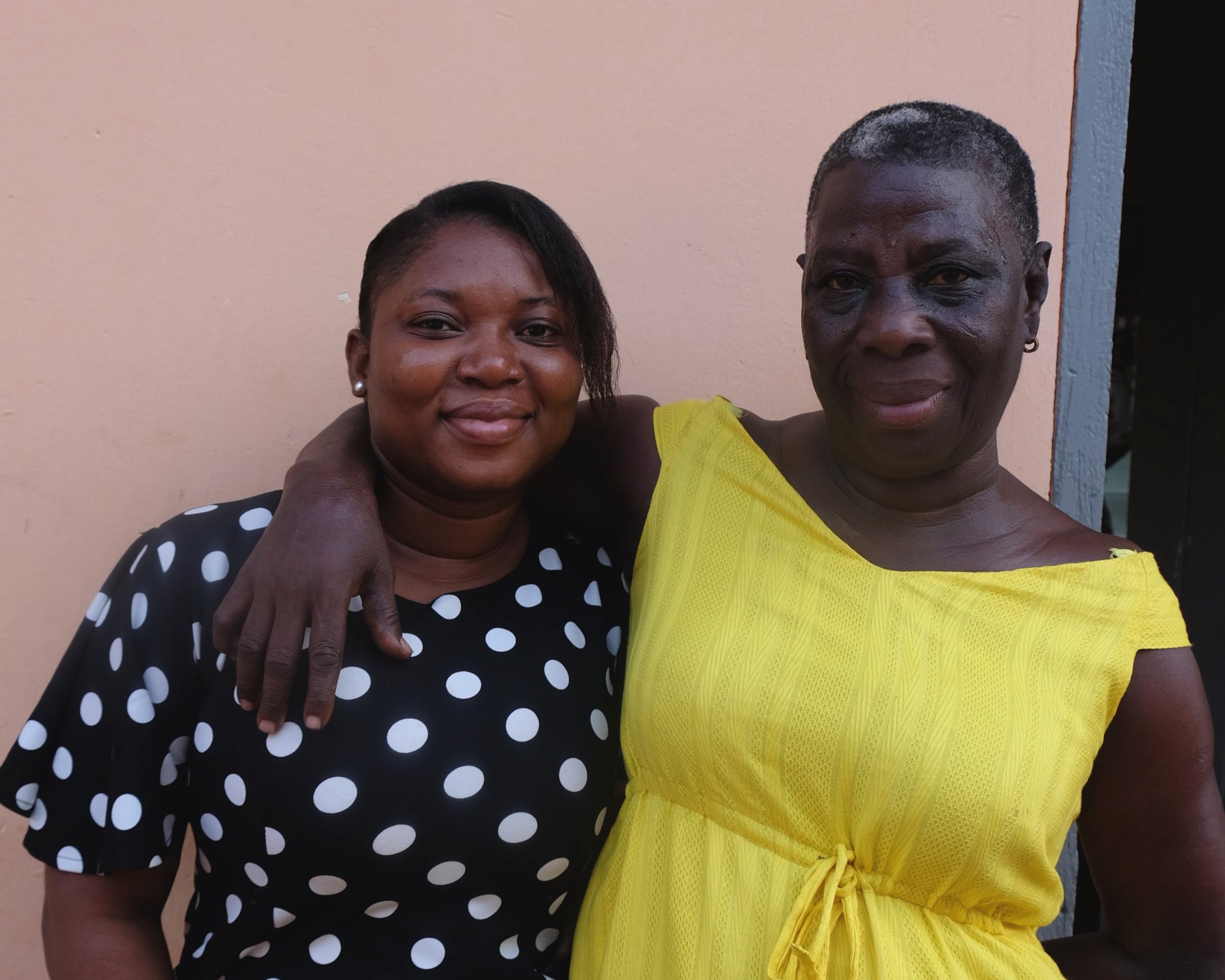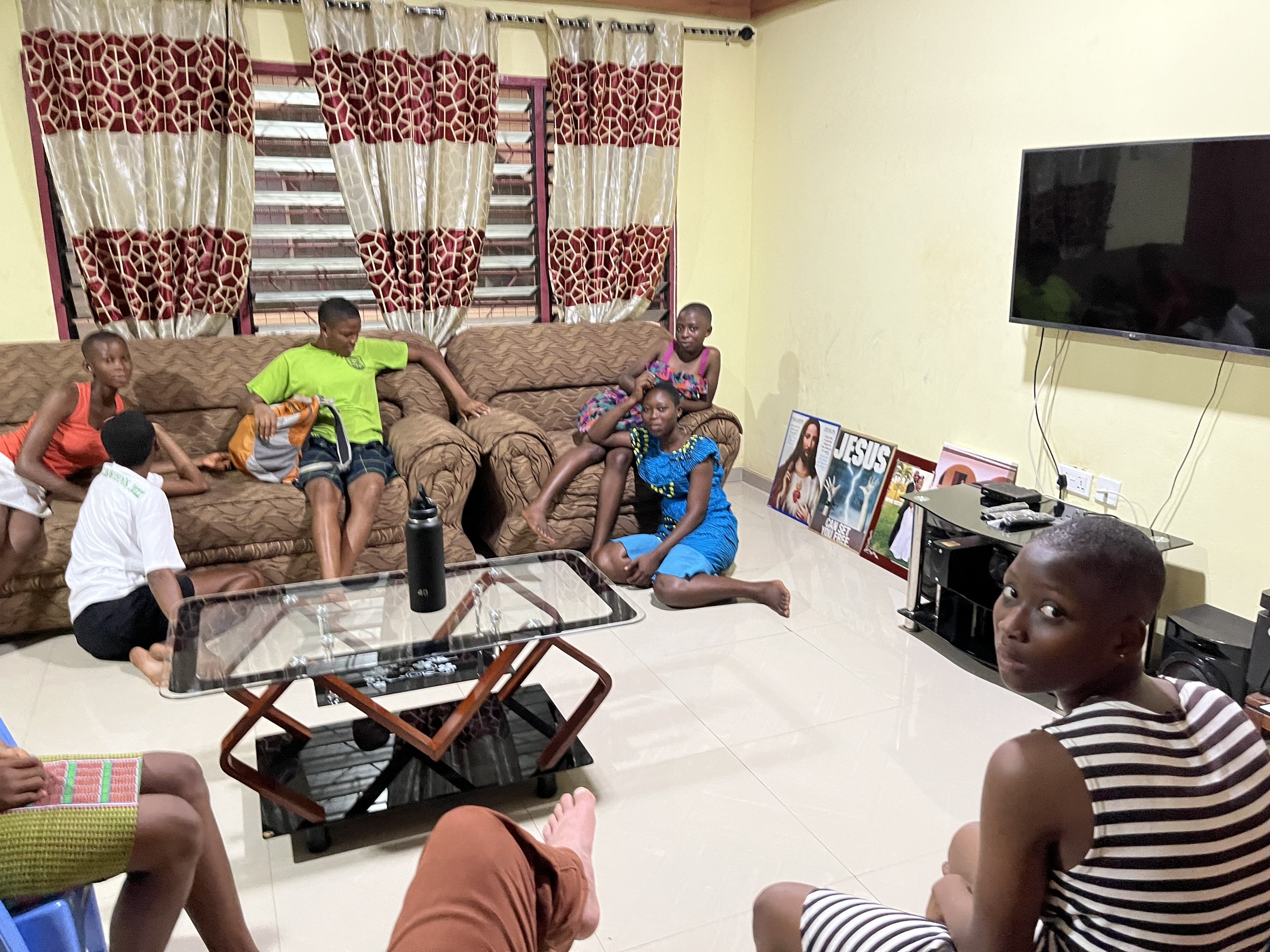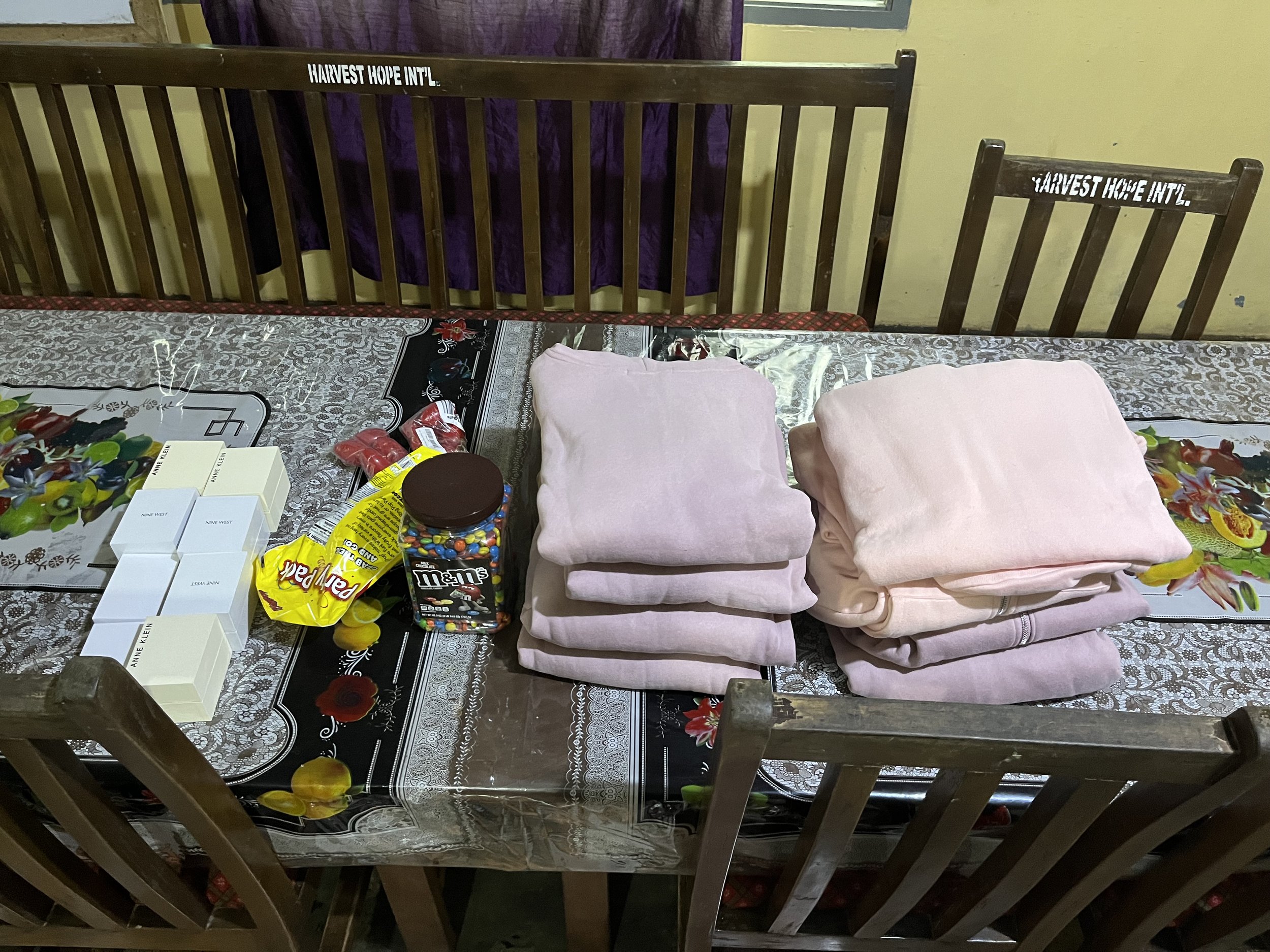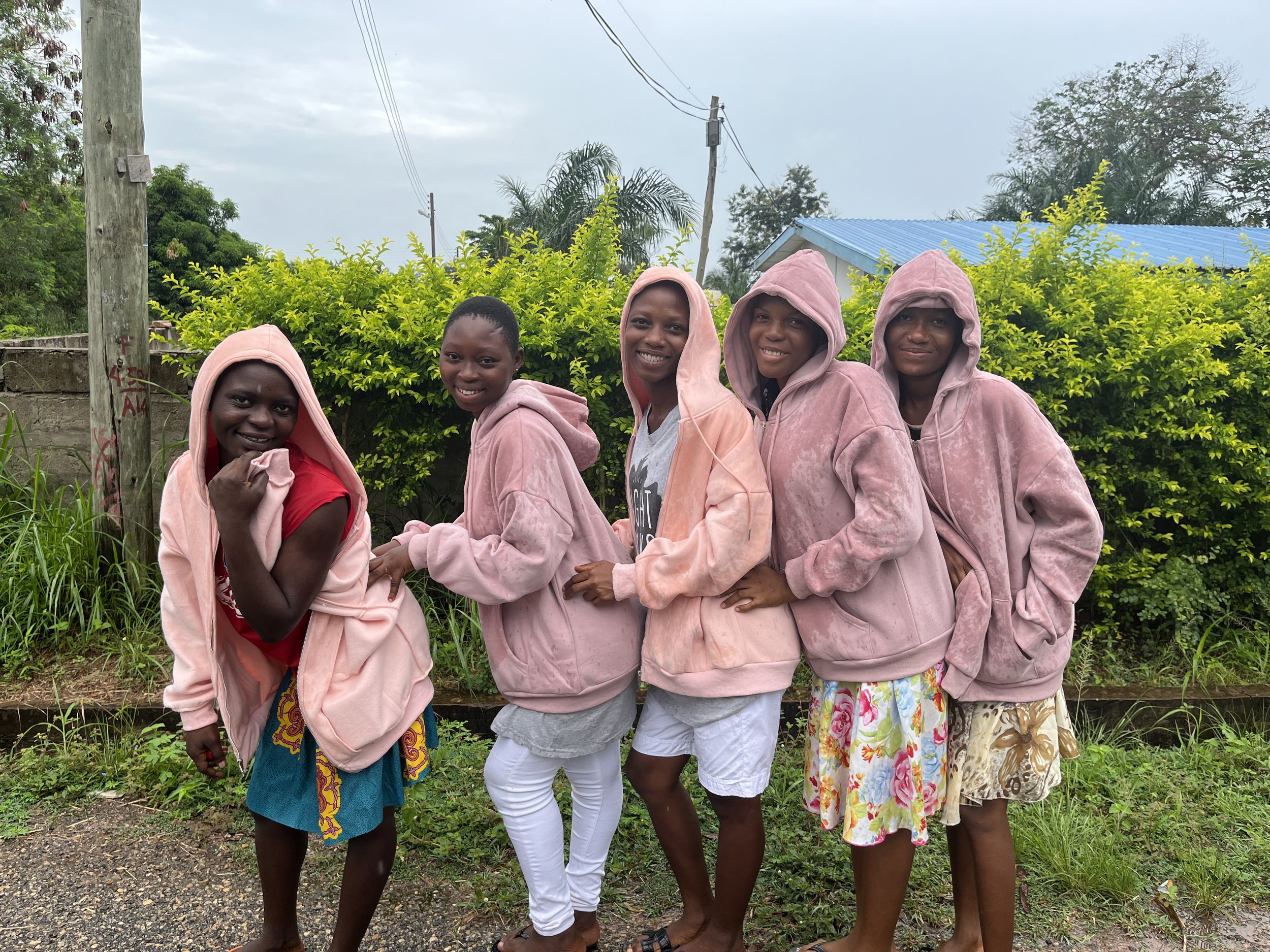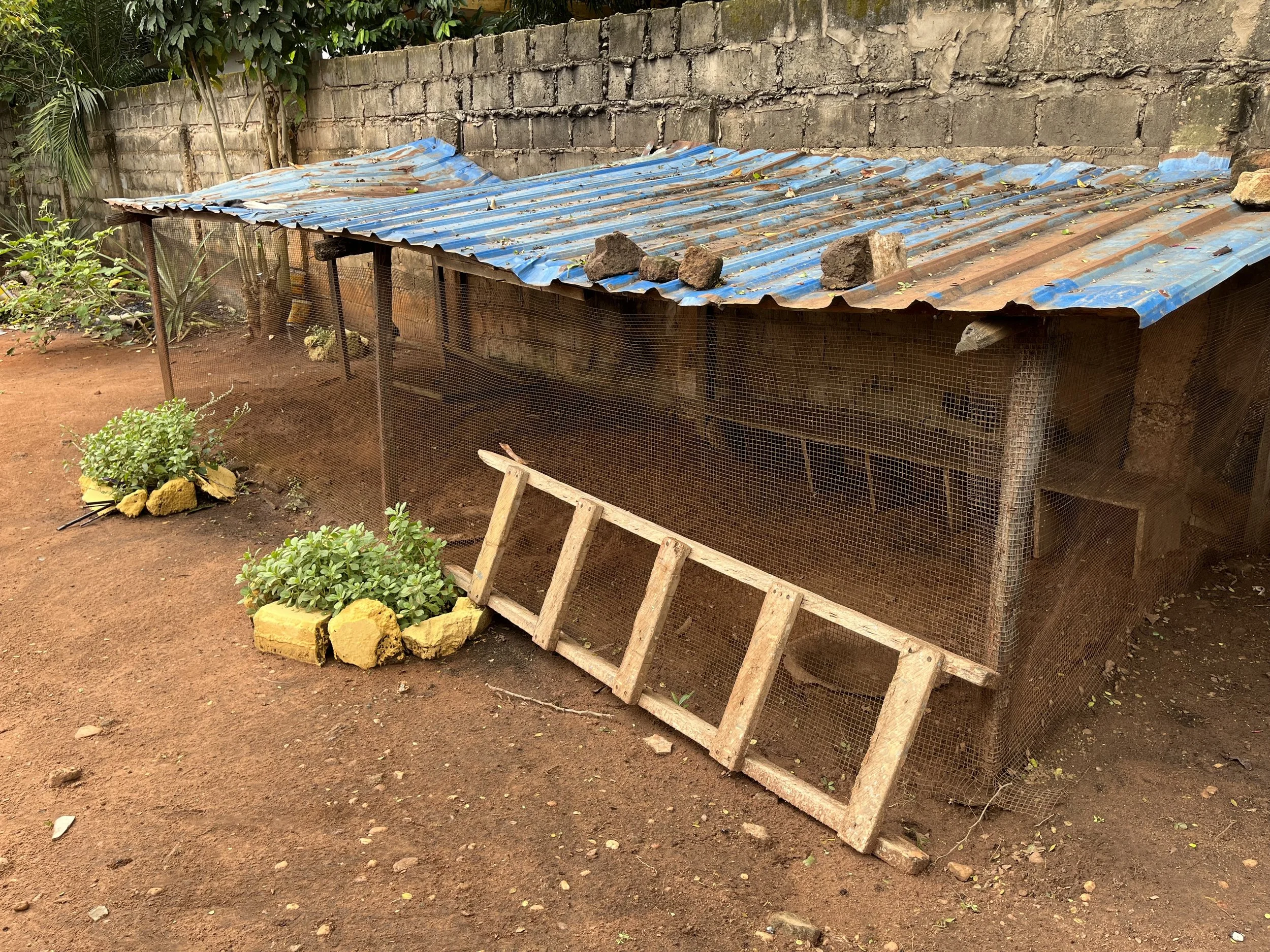October 2023
I was finally able to return to Ghana for a week this October. What a gift it was to see the girls and staff face-to-face. FaceTime and Whatsapp can only get you so far–and as much as we are grateful for the technology that lets us communicate across the Atlantic on a daily basis, nothing compares to time spent together in-person.
The big news is, of course, that Eight Oaks celebrated ten years of knowing and caring for the girls this November. A full decade! The further and further we get from 2013, and the older we are, the more amazed I am that so many of you chose to support a couple of twenty-two year olds as we embarked on this journey. I am both flabbergasted and deeply grateful.
I don’t really know where to start when recapping this trip. First things first: the girls are doing great.
Dina, Richlove, Sarah Sr., and God’s Way are fully enrolled in high school. High school in Ghana is more akin to college in the US, in that it is a boarding-school structure where kids leave home to attend and pick a course of study that will determine their major in college. They return to The Yellow House for holidays and school breaks, but are living in dormitories while classes are in session. Lucky is applying for secondary school and will be starting next semester, and the other three (Sarah Jr., Gloria, and Regina) are finishing middle school. It’s exciting, but I’ll miss those brown-and-yellow uniforms.
L-R: Dina, Lucky, and God’s Way. I think Ellie and I will always call them “the girls” but they are definitely young women.
Bernard’s great-niece, Rosemary, lived next-door to us for several years and became our “ninth girl” de facto. She’s attending the same high school as God’s Way and Dina and it was so fun to see her!
It’s hard to describe what a huge accomplishment this is, and how proud I felt hearing them talk about their classes and being shown around their campuses. Only 34% of Ghanaian women complete their secondary education. That statistic is very broad: the odds are even lower when you take into account rural locations prone to child-labor. God’s Way sprawled on the couch one afternoon reading a novel while Sarah Jr. finished her math homework with a protractor. I just couldn’t be more thrilled that they have these opportunities. And, of course, it’s not simply about education. It’s about self-worth and the chance to give back to their communities and families. About the way their lives change when they aren’t pressured into marriage, and when they are able to have children from a place of stability and consent.
A few people have asked about the “exit strategy” for Eight Oaks. The short answer is that we want to give them the chance to go to college. Only about 6% of women in Ghana achieve a university degree. We want to finish really strong, and are gearing up for a final push: hoping to raise about $80,000 in the next 4-5 years to cover those expenses.
Of course, if you’re a parent, you know that just because your children move out of the house doesn’t stop you from investing in them. We’ll always be around. I don’t envision these trips to Ghana stopping, although they might slow in frequency. Ellie and I volunteer our time, so we won’t need to transition out of taking a salary or anything of that nature. We are in it for the long-haul, but only see ourselves needing to fundraise for the next 6ish years.
The first decade was all about laying a foundation, and I hope the next one will be about launching them into adulthood with a huge support net.
But I’m getting ahead of myself.
Most of my time this trip was spent navigating a transition for some of our staff members. If you’ve been with us since the beginning, you’ll know that Mercy and Helen (a mother-daughter duo) were hired by Bernard before we’d even met the girls. Mercy has traveled with us on three separate trips to Yeji; she lived with Landon and Kate for a full year before they moved back to the States, and we have spent months of cumulative time with her. But she was 22 when we hired her, and since then has gotten her own college degree and a job at the local elementary school. She’s in her thirties now and looking towards the future, hoping to start her own family. And the needs of the girls have changed! They no longer require guidance in cooking or cleaning or basic tasks. They are teenagers on the verge of adulthood.
Mercy is teaching full-time, and Helen started running a storefront when the girls began requiring less care. They have transitioned into new roles and we’ve needed to adjust.
Mercy with her class.
She is teaching second grade!
Akpene (pronounced “Auk-ben-ay”) was the Sunday school teacher for the girls and has been known to Bernard and Celestine for several years. Our ever-capable Bernard has been anticipating this transition and had Akpene start working at the Yellow House about a year ago. So she has lived alongside Mercy, Helen, and the girls, and collaborated with our social welfare officer, Jennifer, for several months now. She is younger and has a good rapport with the girls, and I never thought I’d be content to see Mercy move out, but this new arrangement just fits. More than anything, the girls are happy with it. Their confidence has grown in all areas but particularly this one: normally we hold several staff meetings, but this was the first trip that the girls articulated for themselves how they feel things are going at the Yellow House, and what they hope to see for the future.
Mama in the courtyard. Her voice has become the soundtrack for the Yellow House, in my mind: that low, soothing tone speaking Ewe.
Akpene. If nothing else speaks to Mercy’s tutelage, please take note of the peace sign.
Jennifer, our social welfare officer who replaced Destiny a few years ago. I was truly so impressed with her. It’s clear that she has worked hard to gain the trust of the girls.
Jennifer and Helen.
Jennifer, Helen, and Dina playing a game in the courtyard.
I love this front porch so much. Lucky, Richlove, Helen, and Akpene.
“Meeting” with the girls at Bernard’s house. Lucky led the agenda.
This was also the first time that we asked the girls directly what they wanted from the States, and they had the self-assurance to answer! Slouchy “jumpers” and watches and candy. Just when you think they’re all grown up, they request M&M’s and ring pops :)
Ellie usually does the gifts distribution when she’s here, so whenever I do it by myself I have a feeling it’s less exciting. I just sort of set the stuff on the table. They were thrilled nonetheless.
October in Ghana is one of my favorite months because it’s “minor” rainy season—a few weeks of cooler weather before it gets VERY hot for a long time. This morning was drizzly and the girls were thrilled to pop those hoods.
L-R (back): Lucky, God’s Way, Dina, Richlove
L-R (front): Regina, Sarah Jr., Gloria, Sarah Sr.
Walking the younger girls to school, and Mercy walking to her job!
I remember well the enjoyable feeling of taking my younger siblings to school when I had the day off. We said goodbye to Sarah Jr., Regina, and Gloria, and then stopped for a photo shoot on the way back to the house.
L-R: Sarah Sr., Dina, Lucky, Richlove, God’s Way.
Evidence of the ring pops.
Evidence of the watches.
Quick selfie with some of the members of our Ghanaian board. L-R: Ted (obviously), Francis, our accountant, Oscar, a local pastor, Bernard, and Celestine.
I love that our bookkeeper is in his seventies and flying around Akatsi on a motorcycle.
I stayed with Bernard and Celestine and they, per usual, took excellent care of me. This is Bernard greeting me with a fresh coconut.
Chicken coop at the Yellow House. The chickens are out, terrorizing the yard, but this is where they lay their eggs.
After-school snack.
Sarah Jr. coming home from school.
Lucky and God’s Way.
The only four (soon to be three!) still living full-time at the Yellow House.
Back Row: Regina & Lucky.
Front Row: Sarah Jr. & Gloria.
As tradition dictates, we recreated the original (and now ICONIC) first photo of all eight girls. My oldest is 5 now, the same age Gloria was when we met her. On this side of things, I find myself wondering about their parents. What is it like to be unable to provide for your children? What is it like to become a mother when you are still a child yourself? I cannot imagine the courage required to sign over their care to someone else in the hopes that they’ll be given more than what you had…more than what you can offer. I think about their parents, most of whom we are still in contact with, often, and I hope we have done well by them.
L-R: Dina, Gloria, Richlove, Regina, Lucky, Sarah Sr., God’s Way, and Sarah Jr.
10 years ago. Same lineup.
After years of coming to Ghana, I finally looked up and found the name for this little bush: the Madagascar Periwinkle. The girls loved picking the flowers when they arrived at the Yellow House, and it has continued to grow in odd places: through the cracks in concrete, out beside the front porch. Here is a brief description that made me smile:
“In its natural range, Catharanthus roseus is considered weedy and invasive, often self-seeding prolifically in disturbed areas along roadsides and in fallow fields. It is so well-adapted to growth that it is listed as a noxious weed in Western Australia.”
Shane Claiborne likens the mustard tree to a weed in Irresistible Revolution, saying that those listening to Jesus’ parable would’ve been confused. Why would you compare the Kingdom of Heaven to a weed, or an ugly bush like the mustard tree?
We are apt to plant metaphors around here: Little acorns that sprout into mighty oaks and house entire ecosystems; Madagascar Periwinkle bushes that burst through concrete and scatter pink flower petals on dry ground; mustard trees that conquer gardens with their wild branches and transform landscapes, whether asked to or not.
I think goodness is kind of weedy. It gets into stuff. My mother-in-law always reminds us to plant fresh mint in a pot because it will take over your yard if given free reign. We might invite Jesus into one corner of our lives, but he’s not content with the corner. He wants all of it. “Check this out,” he says, with a twinkle in his eye.
Sarah Sr.
Watch them grow.
Sources:
Education Rates here and here.
Madagascar Periwinkle.




